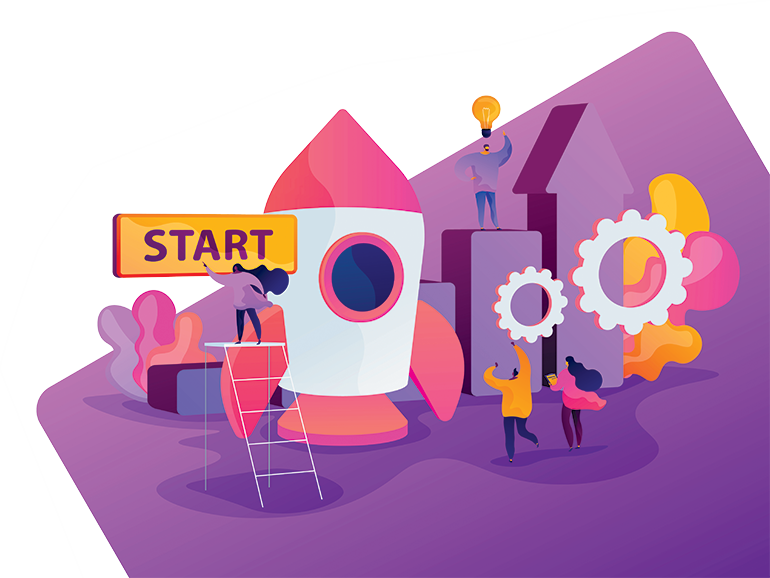Rethinking startup support in the Philippines

By Bjorn Biel M. Beltran, Special Features and Content Assistant Editor
The Philippines has no shortage of smart people with good ideas. That’s been proven again and again. So, where are all homegrown startup unicorns?
Aside from Mynt and Voyager Innovations, the companies behind fintech giants GCash and Maya, there has been a noticeable lack of Filipino startups that have majorly disrupted the country’s business landscape. If talent is not the problem, then the bottleneck must be somewhere else.
For many founders, especially outside Metro Manila, the bottleneck is systemic: a lack of mentorship, capital friction, weak founder pipelines, and the plethora of insufficient startup support programs that end before the real work begins.
After all, founders do not emerge fully formed. Most of them start with little more than a brilliant idea, a lot of questions, and a hope that someone will take them seriously. For many such young visionaries, incubators are where the idea either grows — or dies.
“While each offers a distinct value proposition, incubators and accelerators play a crucial role in providing startups with resources and opportunities that might otherwise take years to gain through experience, education, and market exposure,” startup accelerator Launchgarage explained. “These are delivered in a shorter time frame and through cost-effective, scalable approaches.”
To put it simply, incubators and accelerators are “the on-ramps” as Miguel Lorenzo L. Macale, senior investment manager at IdeaSpace Ventures, put it. “Beyond first checks, they shape founder know-how and discipline, give access to networks, and act as convenors in a fragmented ecosystem. They turn talent, hope, and dreams into ambitious and investable companies.”
IdeaSpace Ventures is among the few prominent startup incubators that bring these companies to life. For many, that means survival. Packworks, a startup that now supports thousands of sari-sari stores across the country, traces its early lifeline to the QBO Innovation Hub.
“Incubators and accelerators are often the spark that turns a good idea into something real. And it wasn’t just the program or the initial investment; it was the belief,” the company said. “They supported us at a time when we were on the verge of burning out. That kind of support had huge emotional and intangible value. It gave us the confidence to keep going.”
“What makes QBO Innovation special is that they didn’t stop supporting us after the official program ended. They had no obligation contractually or financially, but they’ve stayed in our corner over the years. Such a long-term commitment is rare. And it shouldn’t be. Every startup deserves that kind of support system,” it added.
Packworks noted that incubators like QBO Innovation and IdeaSpace matter immeasurably in the startup space because they provide the structure, sense of community, and resource access in what is otherwise a very lonely, chaotic journey.
The African proverb “It takes a village to raise a child” is a popular mantra in the Philippine startup ecosystem, because often the success of any venture is only guaranteed by the strength of its place in the community. Yet, those villages still only live within Metro Manila, and Packworks pointed out that many of them follow Western models that do not align with local realities.
Decentralize opportunity
For a startup aiming to serve a nationwide audience beyond the capital, the infrastructure gap becomes impossible to ignore.
Mober, a green logistics startup, put it more bluntly: “[Incubators] are essential especially for first-time founders. At Mober, we were fortunate to connect with global partners like Clime Capital and IKEA. But not every founder has that access.”
Too much support is concentrated in Metro Manila, and too much of it is built for ideal conditions that Philippine rural environments do not have. Many programs are simply not suited for with analog economies, slow-moving local government units, or low-data rural communities.
“We need more accelerators that are grounded in the Philippine context with a focus on rural product-market fit, low-data usage design, logistics, and regulatory hurdles,” Packworks said. “And we need to stop treating support as a three-month boot camp. Founders require ongoing guidance, not just a Demo Day.”
“We need to decentralize opportunity,” Mr. Macale said. “That means: Regional investors and accelerators in Cebu, Iloilo, Davao, etc.; hybrid incubation that enables flexibility between NCR (National Capital Region) and other regions; and role models from the regions, so students can see that world-class startups can come from their hometowns.”
“The Philippines becomes a true startup nation when founders from anywhere in the Philippines have the same access and ambition as those in Makati or BGC (Bonifacio Global City in Taguig),” he added.
Education that works
But even the best incubators can only work with what comes through the door. The gaps in support startups face today often trace back to an earlier failure, with education systems that reward compliance over curiosity — or worse, ones that simply do not work.
According to the Philippine Statistics Authority’s Functional Literacy, Education and Mass Media Survey (FLEMMS), about 24 million Filipinos are functionally illiterate, with 5.8 million being basically illiterate. One in five high school graduates in 2024 were reported as functionally illiterate, with over 18.9 million struggling with basic skills such as reading, writing, arithmetic, and comprehension. The World Bank reports that 91% of Filipino children aged 10 struggle to read simple text, a rate that has been worsened by the pandemic.
In the 2022 Programme for International Student Assessment (PISA), which measured students’ ability to generate and improve ideas using imagination and creativity, 15-year-old Filipinos scored an average of 14 points in creative thinking, ranking the Philippines among the bottom four out of 64 countries.
If young Filipinos are struggling with basic comprehension and creativity, then it’s no surprise that so few are equipped to think entrepreneurially. If the country wants to produce founders, not just employees, then classrooms need to change.
“Our schools shouldn’t just prepare students for employment; they should empower them to build and lead,” said Mober. “Tech is evolving fast. If we don’t catch up through better education, stronger incubation, and international partnerships, we risk being left behind.”
What does “catching up” actually look like? For Mober, it means classrooms that function more like innovation studios, places where students can design climate-tech solutions or logistics platforms before they graduate. It means project-based learning that mirrors market needs. It means letting students fail early and often.
“But that can only happen if schools and companies like Mober work hand-in-hand aligning internships, research, and project-based learning with actual market needs. We’ve openly encouraged students and universities to learn from Mober’s model and technology, and we hope it inspires them to build sustainable, tech-driven solutions of their own,” the company said.
“If we can bridge education and entrepreneurship meaningfully, we can unlock the kind of talent and thinking that will define the future of sustainable business in the Philippines and beyond,” it added.
Launchgarage echoed the need for change at the source: “When it comes to talent development, higher education has traditionally struggled to keep pace with the rapid evolution of technology and the changing environment it brings.”
“The ability to quickly create relevant and up-to-date curricula increasingly lies with the post-formal education sector, such as bootcamps and short courses. Many of these programs are now being delivered through online platforms, making them more accessible and adaptable to emerging industry needs.”
Entrepreneurship right at the start
As accessible as these resources are in the era where even remote provinces have smartphones, it still highlights a fundamental flaw in the education system. Entrepreneurship, innovation, and creativity are qualities that need to be nurtured from a young age.
“Our education system still trains people to be parts of machines, follow instructions, play it safe, and avoid mistakes. But that’s not the world we live in anymore. And that’s not how startups, and real change, are built,” Packworks said.
“We need to start teaching entrepreneurship as early as high school. Not just theory, but with real stakes. Real money. Real execution. Let students start ventures, fail, and try again. Let them pitch, budget, launch, and learn. Let it count for actual credit.”
That includes launching ventures for credit, internships in startups instead of just corporates, and treating business-building as a skill to be developed over time, not a one-off gamble.
Progress is visible in places. IdeaSpace’s Mr. Macale pointed to student-led organizations like Affiliated Stanford Entrepreneurial Society Manila (ASES Manila) as leading the charge in making startup life a desirable and viable path.
“I’m extremely excited and hopeful for the youth,” he said. “They’re certainly more exposed and equipped than 10 years ago.”
But exposure alone is not enough. What students, especially those outside elite campuses, need is the same kind of village that makes entrepreneurship in Metro Manila feel possible. Otherwise, the next generation of builders will be trained to follow blueprints instead of drawing new ones.
As Packworks noted, entrepreneurship is a skill like any other, one that needs the structured repetition, failure, and iteration that a school is best at providing.
“We need to build local startup success stories, so that young people in Bukidnon, Basilan, or Bicol don’t think you have to be in BGC to launch a big idea,” the company said.
“We need to raise a generation that doesn’t just memorize our country’s problems, but starts solving them. A generation that knows that losing battles is okay, so long as you’re still in the fight to win the war.”



